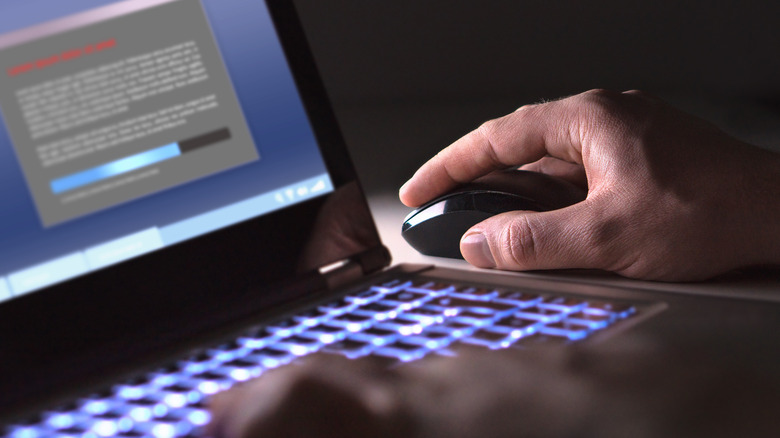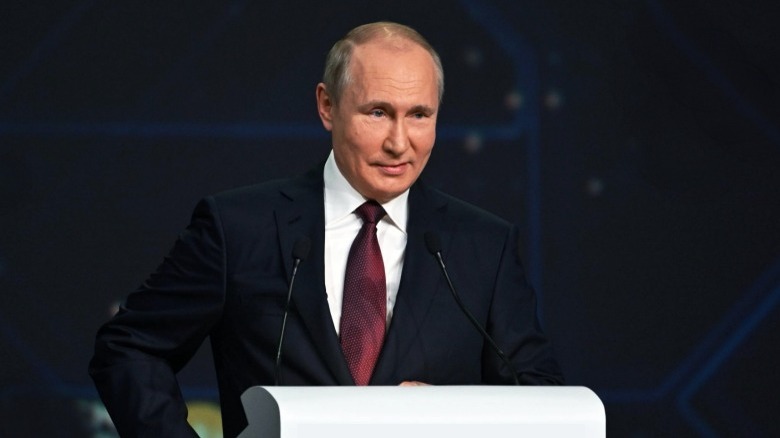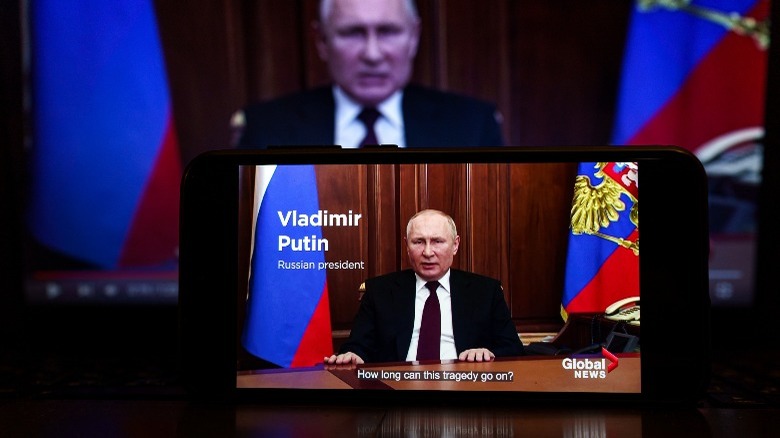Russia's Desperate Move To Get Around Tech Bans
Ever since Russia invaded Ukraine, governments and companies alike have started to boycott the country. Severe sanctions, trade bans, and removal of service have been taking place every single day, with more and more large corporations withdrawing from Russia. This includes tech giants such as Microsoft and Apple. Although all of these sanctions are being imposed as a means of putting pressure on Vladimir Putin to stop the war, it seems that Russia may have found a way around them instead — at least where software is concerned.
Russia's invasion of Ukraine has started on February 24, 2022, and so far, there seems to be no end in sight. The response of the world was instantaneous, and although other countries are not participating in the warfare (aside from Belarus, which is aiding Russia,) various sanctions are being used as a means to make Russia cease its attacks. Many countries have closed their skies to Russian aircraft, import and export of energy, gas, fuel, and other valuables have largely been stopped, and many services chose to stop operating in Russia until the cruel attacks come to an end.
The United States government has imposed some of the most severe sanctions of all, so severe that the French economic minister Bruno Le Maire referred to them as an "all-out economic and financial war." Large corporations followed, partly by choice, partly because the new laws prevent them from operating in Russia. In theory, this would leave Russians cut off from many services, but at least for software, there might be a workaround: piracy.
Russia may soon make piracy legal
Downloading software for free via various peer-to-peer (P2P) programs is called piracy, and in most countries around the world (Russia included), it's usually illegal. This means that Russian citizens, now cut off from being able to purchase or access services such as Windows, Netflix, Adobe, and more, would be committing a crime if they chose to download pirated software for free. However, according to Torrentfreak, Russia may be about to introduce a law that temporarily makes piracy legal.
The new amendment is still in the proposal stages, but given how dynamic the situation is, it very well may be passed soon. Proposed by the Russian Ministry of Economic Development, it's titled "Priority Action Plan for Ensuring the Development of the Russian Economy in the Conditions of External Sanctions Pressure." The document, if adopted in its entirety, will introduce a number of changes that will have an impact on copyright and patent laws as well as trademark owners. Reportedly, this would only affect the companies that are currently boycotting Russia, so there is a caveat to ensure the safety of brands that do not condemn the Russian invasion.
The most important part is listed as point 6.7.3 and addresses the fact that numerous companies have revoked software licenses, possibly affecting various Russian businesses. Even if the service is still available to previous customers, new licenses may not be sold, so purchasing software may be impossible. Introducing a workaround may be used by the Russian government as a means to calm down potential unrest.
Only certain companies will be affected
The proposal reads, "Cancellation of liability for the use of software (SW) unlicensed in the Russian Federation, owned by a copyright holder from countries that have supported the sanctions." This applies to both civil and criminal liability. In simpler terms, this means that if no Russian alternative is provided to the software, downloading it illegally will be permitted — as long as it comes from a source that supports the sanctions on Russia.
Of course, getting your hands on illegal software is easy enough when you know where to look, so this proposal could potentially open the door to thousands of users downloading content without having to pay for it. On the other hand, many modern programs circumvent piracy by requiring cloud access in order to use them. Subscription-based services do not let you use them until you log on and identify yourself, so for those, even Russia may be unable to find a fix.
Regardless of the law, Russians may turn to P2P programs
The mounting pressure from all over the world was meant to help Ukraine, and the solidarity is certainly visible. The list of companies involved in boycotting Russia grows daily, ranging from Google to McDonald's, but the fact that Russia is considering such drastic steps shows that it may not be about to give in to the pressure. Of course, illegal downloads are already fairly widespread in Russia — but to greenlight something that was previously illegal sends a strong message.
There is no telling whether the law will come to pass, but if the Russian war on Ukraine continues, the country will continue losing access to all kinds of services. Whether the government condones it or not, it's probable that many citizens will turn to torrent programs in order to access what they were previously able to purchase themselves. On the other hand, Russia does not stay idle and continues banning social media platforms, such as Facebook, as a means of censorship.



